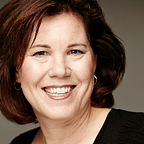How an Idea Becomes a Book, Part 9: Writing Forward
This is the ninth part in a series. You can catch up by reading the other parts here: Part One, Part Two, Part Three, Part Four, Part Five, Part Six, Part Seven, and Part Eight.
The steps that I have gone through on how an idea becomes a book are the things that ideally happen before you start to write.
If they don’t happen before you start to write, you will be sorting them out while you write, which is to say you will be cramming two processes into one: the strategic thinking and the execution of the writing. It doesn’t usually work very well and is, in fact, the source of frustration and overwhelm for a lot of writers.
When people come to me because they are stuck or stalled out, or because they are being rejected by agents, editors, or the reading public, the first thing I do is go back to the fundamentals.
- What is your point?
- Why do you care?
- Who are you writing for?
- What do they need?
- What is the best structure to contain your idea?
- What is the reader transformation journey?
- What else is your idea reader reading?
If the writer can’t answer these questions with clarity and conviction, that is where we start — even if they have written 250 pages. It is only when those answers are clear that writing forward makes any sense.
The beauty of writing forward after you’ve done the hard work of figuring out what you want to write and what the shape of the work is going to be is that it is usually a relatively straightforward process. It’s not effortless, by any means, because writing is a multi-layered, complex intellectual and creative undertaking, but you won’t be searching for what to say or how it connects to what comes before or after it.
Writing forward when you have a strong foundation becomes about two things:
- The habits and practices that have little to do with writing itself. To wit:
▹ You have to make time to do the work, which usually means giving something up like sleep, or a pristinely clean house, or time with your family and friends, or your favorite Netflix show, or cooking — or maybe all of the above at various times. The idea of setting aside blocks of time for deep work is appealing and scientifically-proven to be the most effective, but in real life, most people don’t get blocks of time like that. You have to beg, borrow, and steal the time you need to write.
▹ Set a goal for when the draft will be done. Pick an actual day on the calendar and work backward from that day to what you need to do. You might write like clockwork for 30 minutes every day at the same time, or you might write for an hour on Wednesday, two on Saturday, and 15 minutes on Monday when you are waiting in the carpool line. How you get there is not as important as the end-goal.
▹ Find someone to be accountable to. I just heard novelist Nancy Johnson, whose debut novel The Kindest Lie is getting all kind of crazy good attention, attribute her success to an accountability partner, whom she would call at the same time every night (after a full day at a full-time job) to declare the goal for the evening, and hold each other in check.
- I also just spoke to my niece, who does scholarly writing, who swears by an app called FocusMate. You log in and declare to a stranger what your goal is for a 50-minute session and they declare their goal to you, and you do the work in silence. At first, I thought this was insane, but then I realize — no: this is just excellent accountability.
- As a book coach, I am in the business of accountability. I think it’s a huge part of why book coaching works. People are paying me and they want to get their money’s worth, which means they’re not going to miss their deadlines.
▹ Don’t make excuses. The people who publish books are the people who write them, who finish them. If you want to be in the arena, making an impact and being part of the conversation, you have to do the work. You have to persist. It is as simple and as hard as that.
2. Raising your voice. At the end of the day, this is what writing is really all about. It’s about speaking your truth, claiming your authority, taking a stand for what you believe in. We can talk all day long about how to write — both the craft of it and the practice of it — but the hardest part by far is stepping into your power.
I have the great privilege of working with people who are very accomplished in their fields — entrepreneurs and executives and thought leaders — and every single one of them rubs up against the difficulty of raising their voice. Will people care? Do I have the right to tell this story? Is it good enough? Will it matter? These are not just questions the beginner asks; these are questions every writer asks. And they are questions about raising one’s voice.
The way to combat these questions is to go right back to the start: why are you writing this book? Tap into your motivation, the reason you care, your rage and your passion. That is how you find your voice and how you finish your book.
